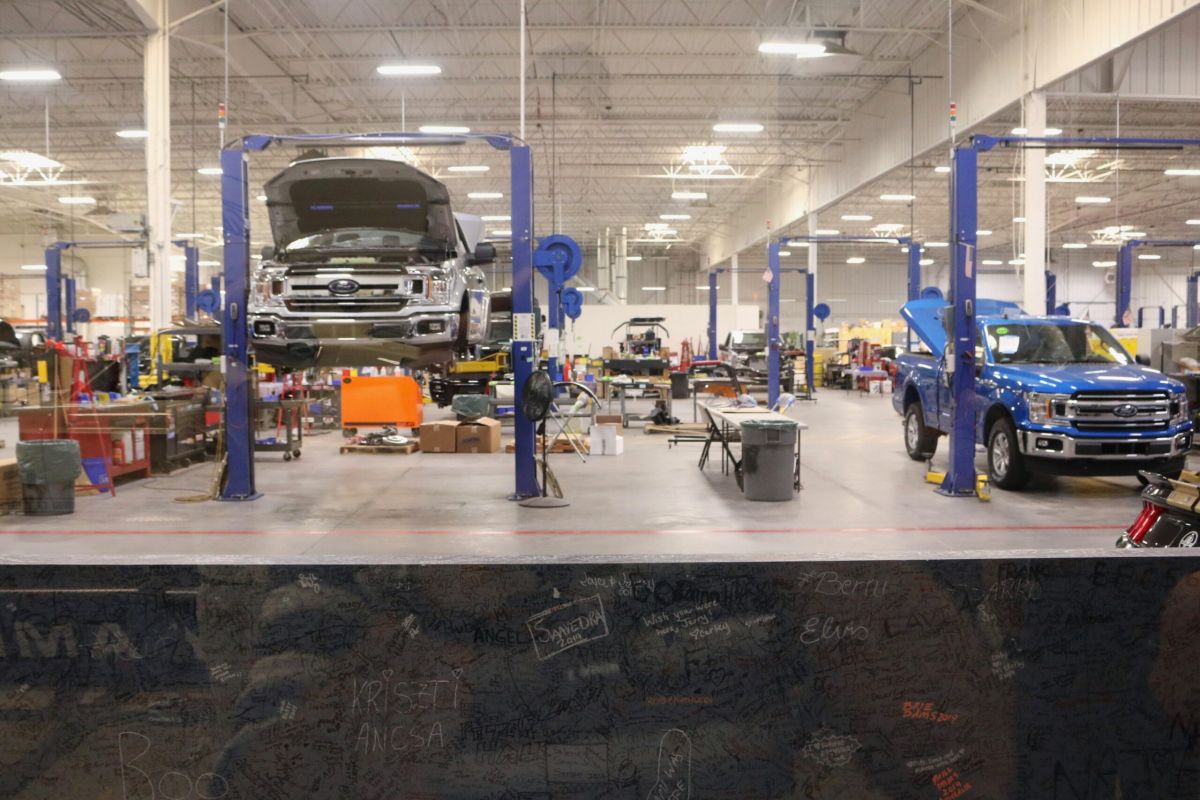
Ford Electric Truck Owner Hears ‘loud Pop’ at Charging Station
On November 28, 2022, a Ford F-150 Lightning pickup truck owner heard a loud boom when charging his electric vehicle at the charging station. Let’s explore the details of the incident with Ehline Law and our truck accident personal injury attorneys. We have seen one tweet after another exposing how things stopped working, the noise and how people feel screwed, so we decided to write about everything below. So if your lightning won’t move miles from home, here is a great article to diagnose what happened and why.
Ford Lightning Dead After Owner Tries to Charge It at Electrify America
According to Eric Roe, the owner of the Ford F-150 Lightning truck, he was charging his vehicle at the Electrify America charging station in Newport, Oregon, when he heard a “loud pop.”
The Ford F-150 Lightning Goes Bust after Following Standard Charging Procedure
The incident occurred when Roe and his family were on holiday, 1,000 miles away from home. As Roe posted about the incident on Twitter, many quickly assumed that he did not follow the standard procedure.
However, Roe claimed that he plugged the Ford F-150 Lightning into EA Charger as he usually does, following the recommended standard procedure.
EA Charger Fried the Internals of the Ford F-150 Lightning, Roe Claims
Following the loud boom, the Ford F-150 Lightning threw several error codes on the dash, the EA charger went dark, and his electric pickup truck could not start.
Worried about his situation, Eric Roe started tweeting pictures of the incident, providing his followers with updates. Little did he realize that his tweets would go viral.
Power Ford Claims They Need a Special Battery Before Diagnosis
Roe called for a tow, and since the vehicle could not shift into neutral, the tow truck driver had to drag it out of the spot.
The driver towed the “fried” Ford F-150 Lightning to a Ford dealership in Newport for diagnosis. Unfortunately, the dealership stated they would need a special 12-volt battery before determining what was wrong with the vehicle.
Ford Motor Company Connects Roe with Technicians
Roe took his frustration to Twitter, stating that Ford Motor Company told him they could not do anything before December 9, 2022. However, as his tweets blew up, it seemed to change the company’s mind, and a Ford spokesperson connected Roe with their technicians and engineers to help resolve the matter.
Electrify America Starts Investigating the Issue
MotorTrend, a magazine for car reviews, news, car rankings, and more, reached out to Electrify America about the incident. The electric vehicle DC fast charging station infrastructure company stated they were investigating the incident and were in touch with Eric Roe.
Many people suspect the charger fried the vehicle’s internals as the Ford F-150 Lightning flashed several fault codes. Roe will probably have to replace the Ford truck batteries, costing over $35,000.
Are Charging Stations Liable for Property Damage?
It’s unfair for Roe to pay the big repair bill if it wasn’t his fault. Roe followed the standard procedure for charging his vehicle, so it shouldn’t have caused that problem unless there was an issue with the charging station, the cord used, or the Ford F-150 Lightning.
If an electric vehicle owner uses their own cord at a charging station, they will be liable for damages to their vehicle if the cord is faulty or damaged. However, they may be able to pursue a claim against their insurance company if they have car insurance, as the electric charging cord is considered part of the car.
It is also important to note the difference between an AC and DC fast charger. An AC charging station that many small electric vehicles use has raw 120/240 volts AC, meaning the charger and the inverter are inside the car, and the charging station can’t deliver more than 120/240 volts if it malfunctions.
If your battery goes bust in your Nissan Leaf or an electric vehicle that uses level 1 and level 2 chargers, your vehicle’s inverter or internal charger is probably faulty.
In such cases, the charging station is not responsible for property damage. But, if an issue with their charging cable resulted in damage to your vehicle, you can pursue claims against the electric charger’s insurance company.
DC fast charging is different and has a converter inside the charger, feeding power directly to the car’s battery. Property owners may be liable for property damage if a fault with the DC fast chargers at a charging station results in damage to the vehicle.
However, if the car owner was negligent by using incompatible cables with the DC fast chargers at the charging station, they may have to bear the loss.
Another thing to consider is that Roe drove the same truck while crossing the Mojave River twice, as seen in the video uploaded to his YouTube channel. Perhaps, that could’ve caused an issue with the vehicle’s internals.
It is essential to investigate the issue to find out the underlying problem. In the case of “Ford electric truck owner hears ‘loud pop’ at charging station,” there needs to be a proper investigation to understand how the incident occurred.
Currently, the Ford dealership is waiting on the special battery to assess vehicle data and determine what went wrong. That information could be essential in determining who is liable for the property damage caused at the charging station.
Schedule a Free Consultation with Ehline Law Truck Crash Lawyers
If you suffered injuries or property damage due to the negligence of the manufacturers or the charging station owner, contact us at (833) LETS-SUE for a free consultation to discuss the case and know your legal options.
